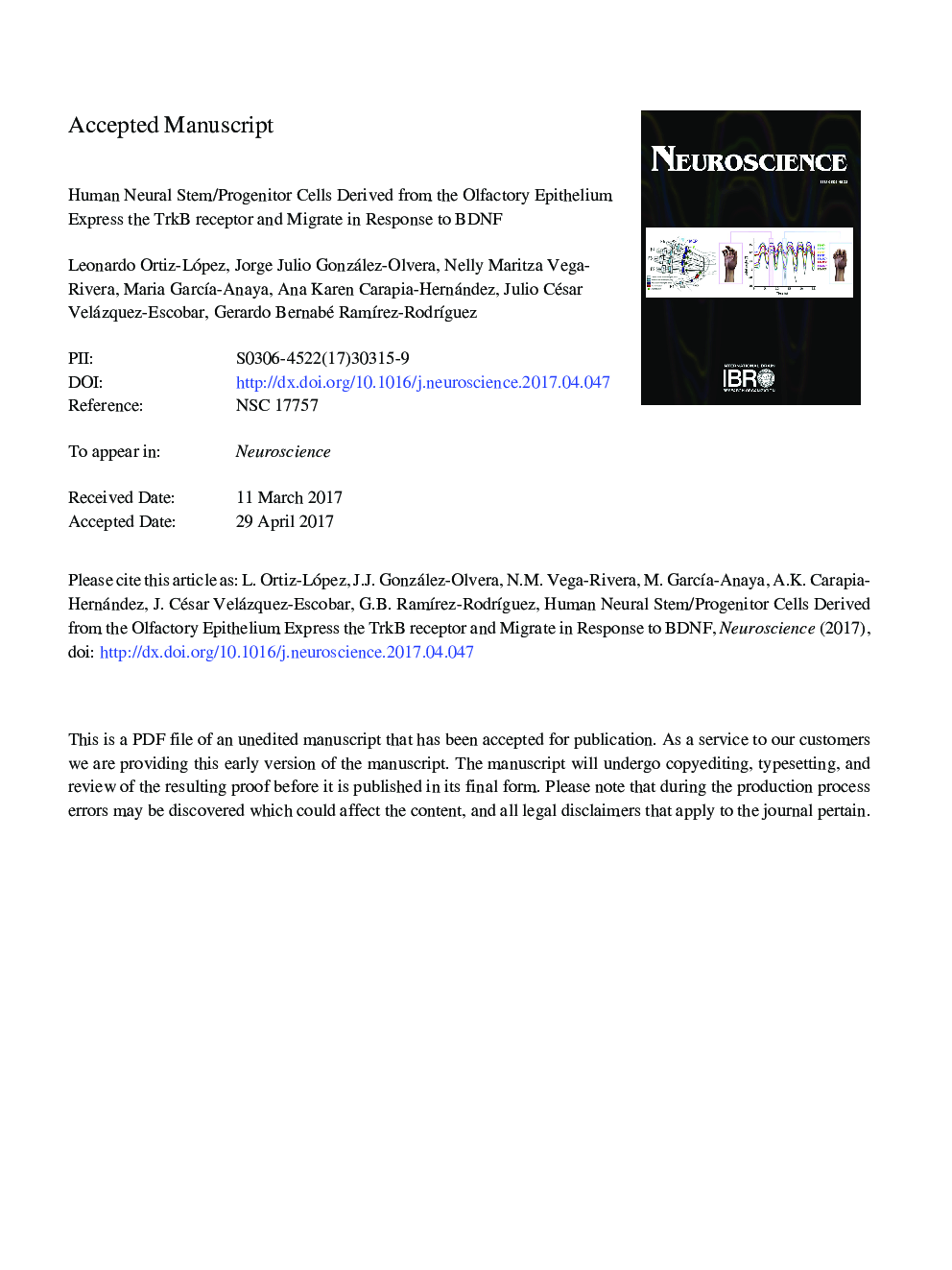| Article ID | Journal | Published Year | Pages | File Type |
|---|---|---|---|---|
| 5737609 | Neuroscience | 2017 | 47 Pages |
Abstract
Neurogenesis constitutively occurs in the olfactory epithelium of mammals, including humans. The fact that new neurons in the adult olfactory epithelium derive from resident neural stem/progenitor cells suggests a potential use for these cells in studies of neural diseases, as well as in neuronal cell replacement therapies. In this regard, some studies have proposed that the human olfactory epithelium is a source of neural stem/progenitor cells for autologous transplantation. Although these potential applications are interesting, it is important to understand the cell biology and/or whether human neural stem/progenitor cells in the olfactory epithelium sense external signals, such as brain-derived neurotrophic factor (BDNF), that is also found in other pro-neurogenic microenvironments. BDNF plays a key role in several biological processes, including cell migration. Thus, we characterized human neural stem/progenitor cells derived from the olfactory epithelium (hNS/PCs-OE) and studied their in vitro migratory response to BDNF. In the present study, we determined that hNS/PCs-OE express the protein markers Nestin, Sox2, Ki67 and βIII-tubulin. Moreover, the doubling time of hNS/PCs-OE was approximately 38 h. Additionally, we found that hNS/PCs-OE express the BDNF receptor TrkB, and pharmacological approaches showed that the BDNF-induced (40 ng/ml) migration of differentiated hNS/PCs-OE was affected by the compound K252a, which prevents TrkB activation. This observation was accompanied by changes in the number of vinculin adhesion contacts. Our results suggest that hNS/PCs-OE exhibit a migratory response to BDNF, accompanied by the turnover of adhesion contacts.
Keywords
Related Topics
Life Sciences
Neuroscience
Neuroscience (General)
Authors
Leonardo Ortiz-López, Jorge Julio González-Olvera, Nelly Maritza Vega-Rivera, Maria GarcÃa-Anaya, Ana Karen Carapia-Hernández, Julio César Velázquez-Escobar, Gerardo Bernabé RamÃrez-RodrÃguez,
